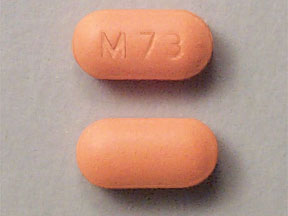
Menest Coupons & Savings Card – Discount Prices from $64.68
My prescription
Edit
0.625MG, Menest (30 Tablets)
Select pharmacy

CVS
$99.98
COUPON PRICE
Walmart
$64.68
COUPON PRICE
Walgreens
$75.67
COUPON PRICE
Albertsons
$90.69
COUPON PRICEMenest savings card
Show this card to your pharmacist
Walmart
$64.68
BIN
ID
PCN
GRP
019876
LH9F97CF40
CHIPPO
LHX
Powered by
Related estrogens prescriptions
Related estrogens prescriptions
More prescriptions for menopause
Price history for Menest
30 Tablets, 0.625MG
Average retail price for Menest
Average SaveHealth price for Menest
Our price history data is based on aggregated prescription data collected from participating pharmacies in America. Our prescription data updates daily to reflect the latest price changes. If you notice a missing data point, it means there wasn't sufficient data available to generate a monetary value for that date.
*Retail prices are based on pharmacy claims data, and may not be accurate when we don't have enough claims.
Menest dosage forms
Dosage Quantity Price from Per unit 0.3MG 30 Tablets $39.90 $1.33 0.3MG 100 Tablets $177.30 $1.77 0.625MG 30 Tablets $64.68 $2.16 0.625MG 100 Tablets $259.92 $2.60 1.25MG 30 Tablets $97.73 $3.26 1.25MG 100 Tablets $370.07 $3.70 2.5MG 50 Tablets $257.42 $5.15
| Dosage | Quantity | Price from | Per unit |
|---|---|---|---|
| 0.3MG | 30 Tablets | $39.90 | $1.33 |
| 0.3MG | 100 Tablets | $177.30 | $1.77 |
| 0.625MG | 30 Tablets | $64.68 | $2.16 |
| 0.625MG | 100 Tablets | $259.92 | $2.60 |
| 1.25MG | 30 Tablets | $97.73 | $3.26 |
| 1.25MG | 100 Tablets | $370.07 | $3.70 |
| 2.5MG | 50 Tablets | $257.42 | $5.15 |
What is the generic name for Menest?
The generic name for Menest is esterified estrogens.
What is menest used for?
Menest is used for hormone replacement therapy. It is primarily prescribed to treat symptoms associated with menopause, such as hot flashes and vaginal dryness. Additionally, it may be used to prevent osteoporosis in postmenopausal women and to treat conditions like hypoestrogenism due to hypogonadism, castration, or primary ovarian failure.
Using the SaveHealth discount card, what is the price of Menest without insurance?
Using the SaveHealth discount card, the price of Menest without insurance is $64.68.
What is the price of Menest at CVS?
The price of Menest at CVS is $99.98.
What is the price of Menest at Walgreens?
The price of Menest at Walgreens is $75.67.
What is the price of Menest at Walmart?
The price of Menest at Walmart is $64.68.
